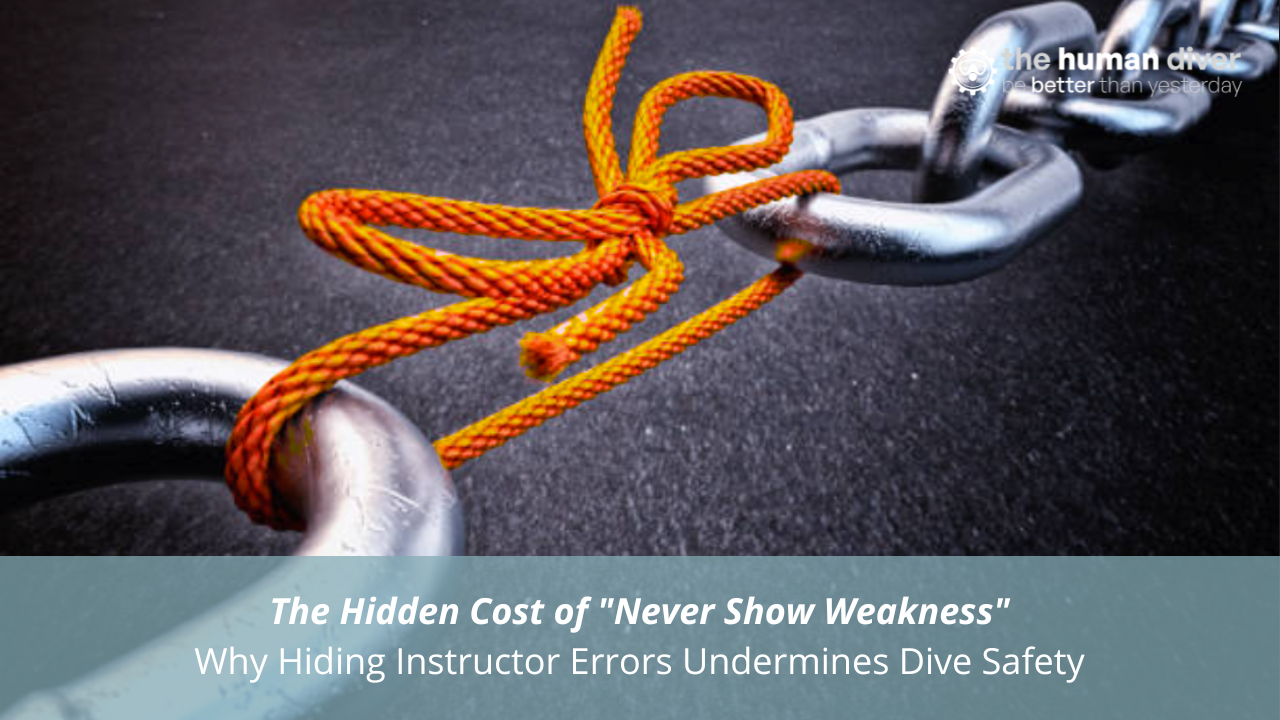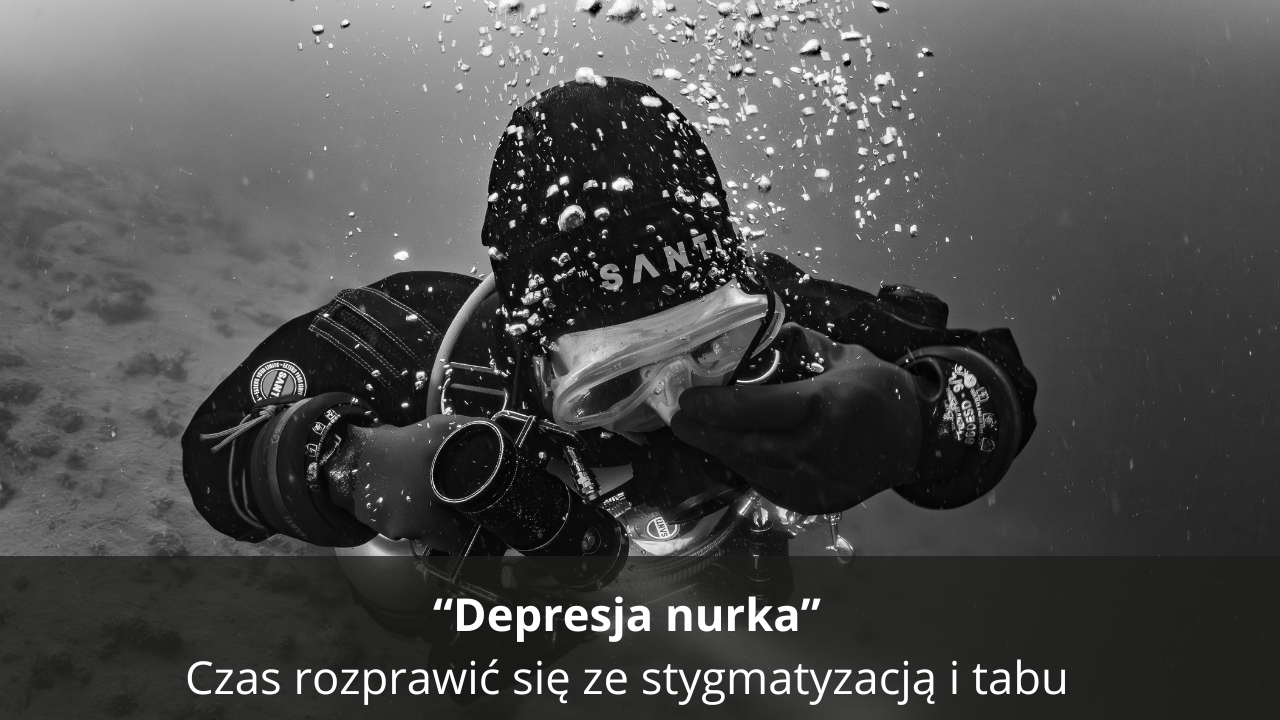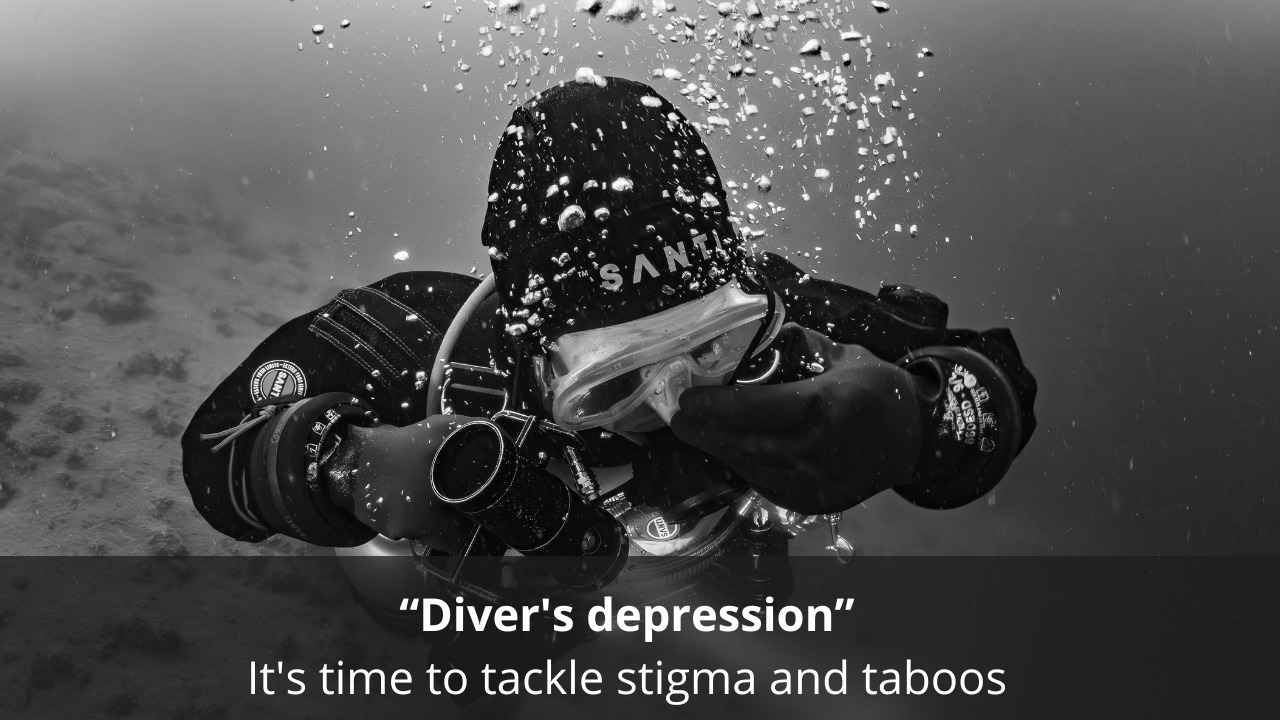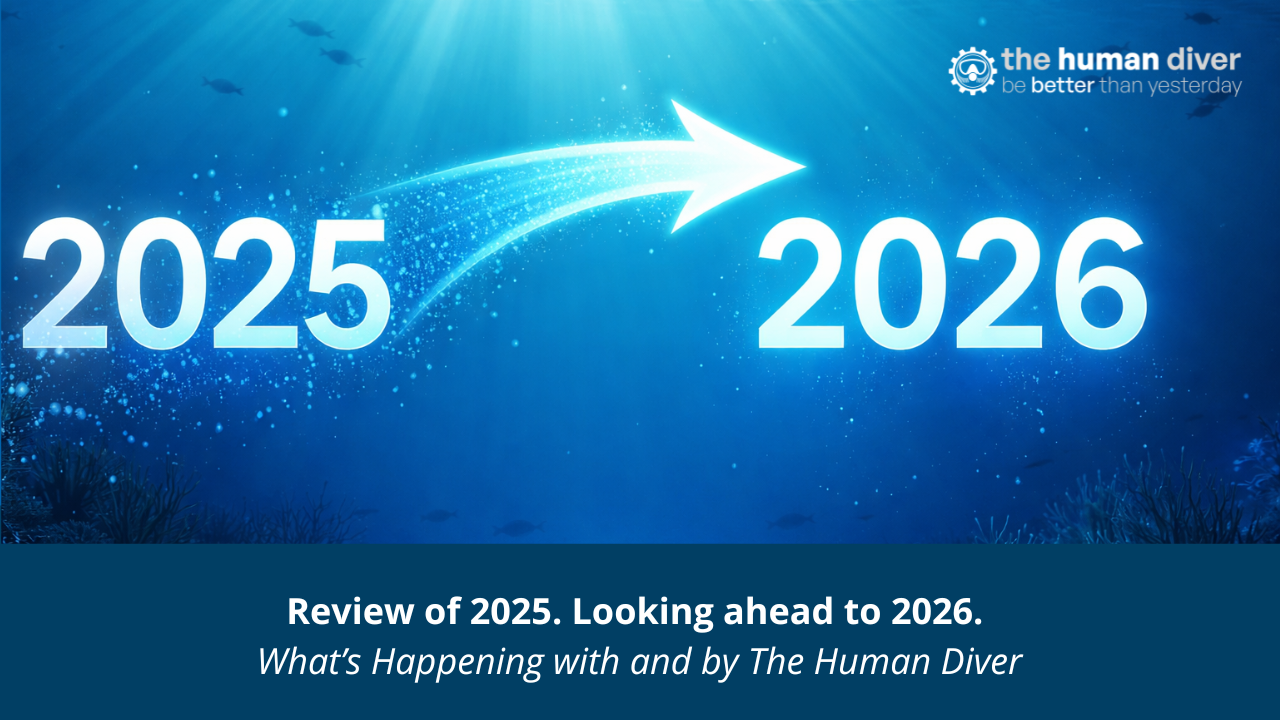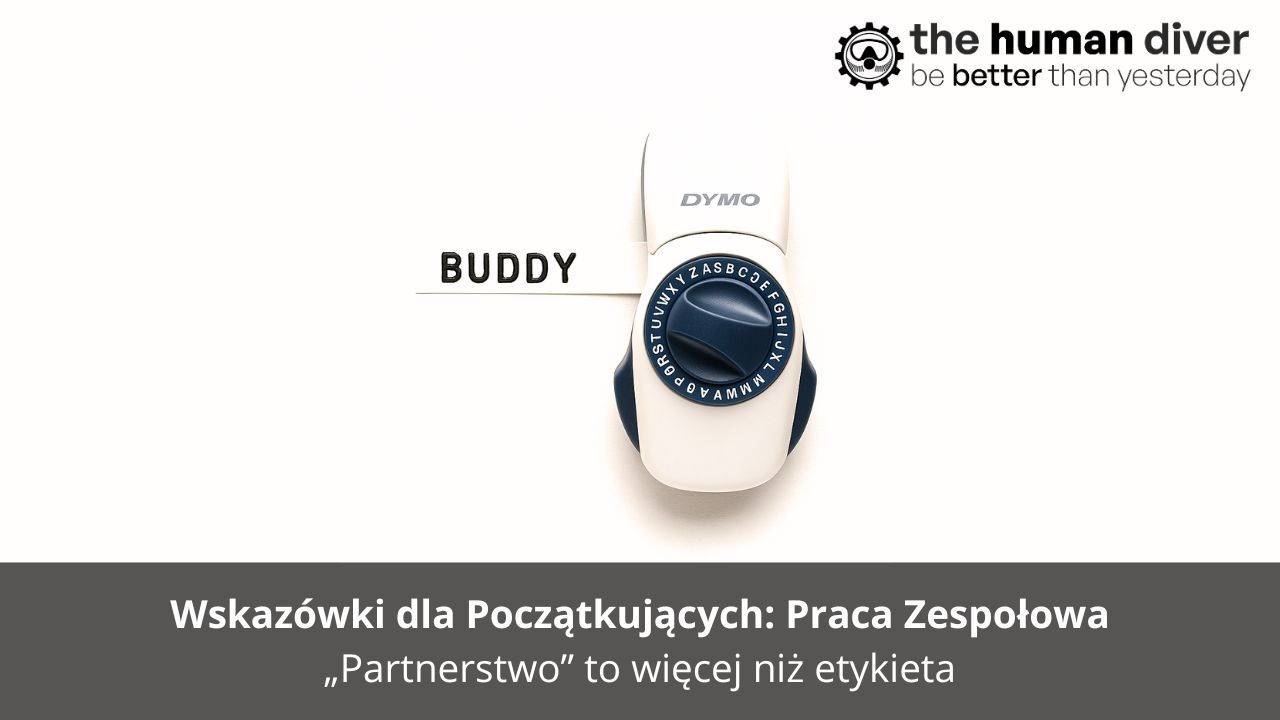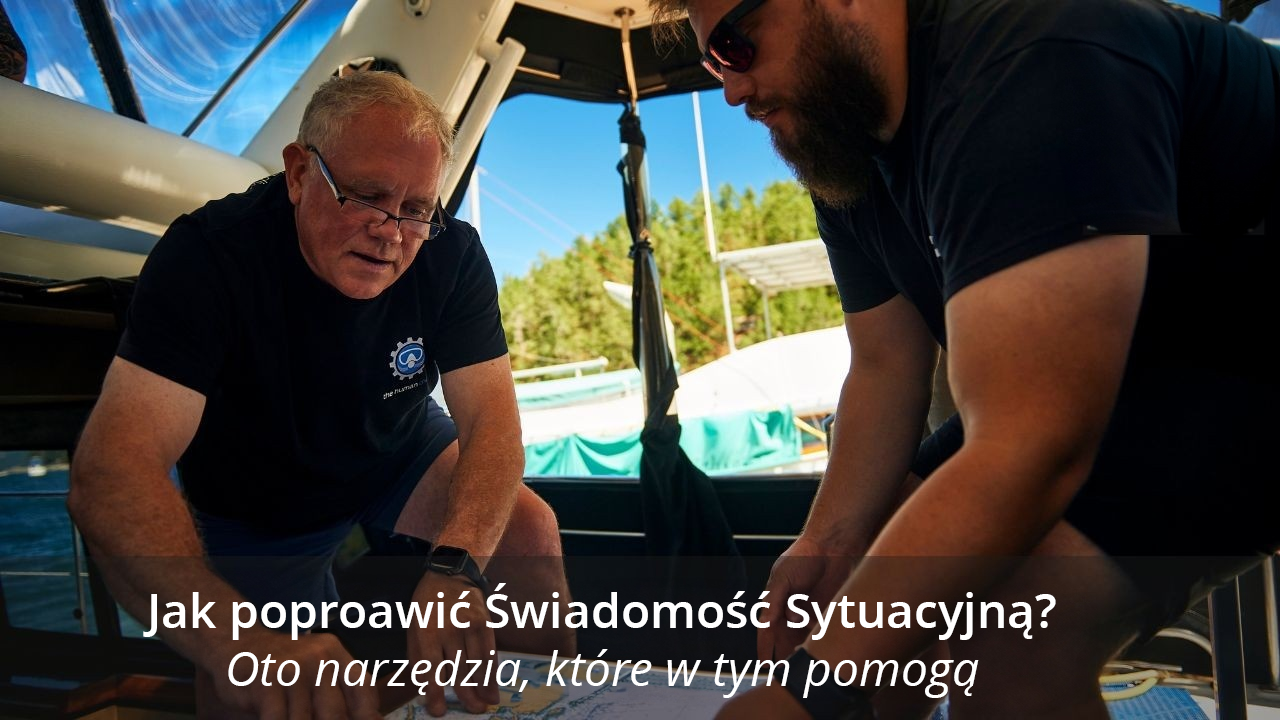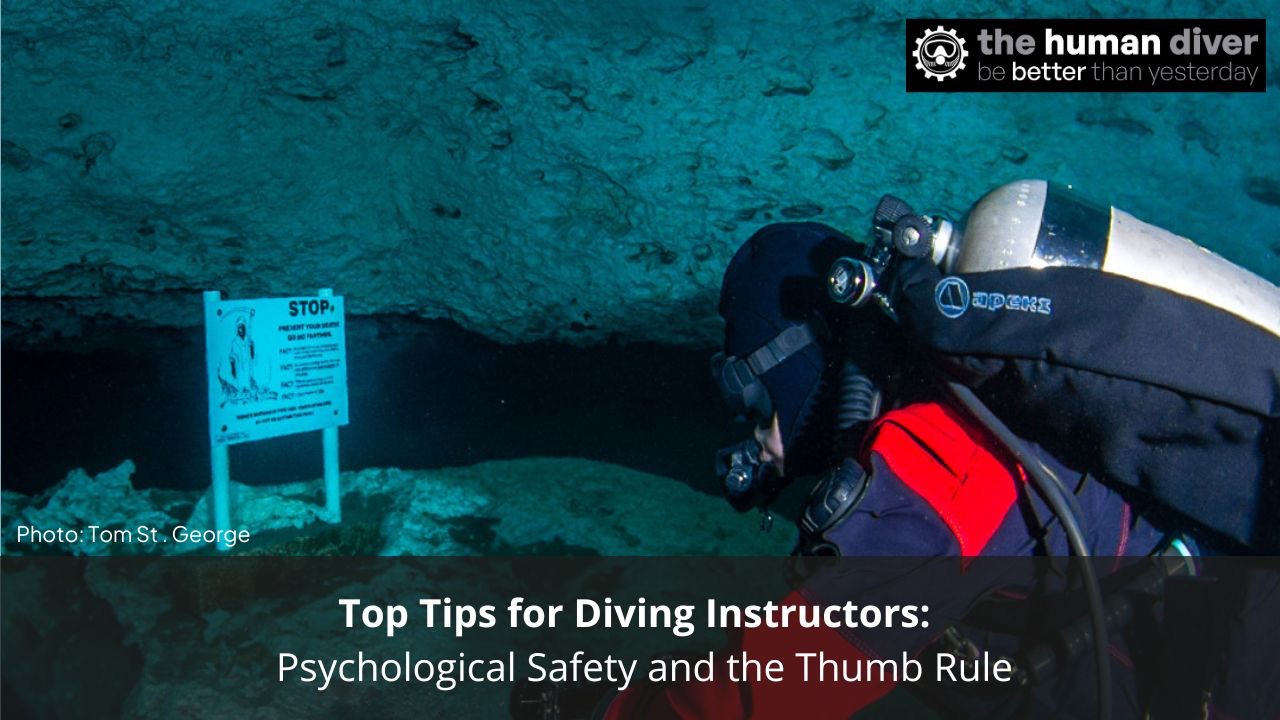
What does Human Factors in Diving mean?
Apr 13, 2018Human factors can be a bit confusing to many people, and there is a really good reason for that. Read on and find out why.
"Ergonomics (or human factors) is the scientific discipline concerned with the understanding of interactions among humans and other elements of a system, and the profession that applies theory, principles, data and methods to design in order to optimize human well-being and overall system performance."
International Ergonomics Association
The model below shows how human factors covers everything from how you press buttons on a controller through to the dimensions of a culture and how people think others should behave when someone senior says something (power distance).
 A model showing the breadth and depth of human factors
A model showing the breadth and depth of human factors
Steven Shorrock wrote a great series of four blogs recently which highlighted the fact that human factors could be considered to be made up four parts which overlap to some degree (Shorrock) and it is the lack of this clarity which can cause confusion as to what human factors actually means:
- The need to take into account the ‘human factor’. This looks at the individual and their own variability, primarily in terms of behaviour. ‘The bad apple’ in the barrel and the want to ‘fix’ the human.
- The ‘factors of humans’ which addresses cognitive function, psychology, biases, heuristics, errors, anthropometrics, learning and teaching styles and stress/fatigue.
- The ‘factors affecting humans’ which include organisational and cultural frameworks, work design, mental models and decision making.
- The factors describing how humans operate within a socio-technical system as they interact with each other and technological systems - this interaction is sometimes referred to as ‘work’ as is the area I am really interested in. Differences between ‘Work as Imagined’ and ‘Work as Done’ are where risk exists. (See diagram below for more on this).
HF standards and Research
Even though human factors standards exist across the spectrum of human factors and human performance, as far as I know, none are formally applied within diving industry.
I do know there is almost no research looking at human factors in sports diving. What has been written is mainly about cognitive functions and effects of the hyperbaric environment e.g. narcosis.
Non-Technical Skills and Crew Resource Management
One subset of human factors which I personally focus on is Non-Technical Skills (NTS) or Crew Resource Management (CRM) training. I have done this because NTS/CRM skills are so important when dealing with dynamic and ambiguous environments (such as you get when diving) and yet no training agency provides specific NTS or CRM training although certain topics are covered at a cursory level.
The reason being is that the key aim of NTS/CRM programmes is to improve the shared mental model of the team to make better decisions. To be most effective, the skills need to be used in a ‘safe’ environment. Decisions are informed by situational awareness, and situational awareness is improved by effective communications between the team, the skipper/dive manager and the equipment (computers/controllers) and teamwork supports all of the above. However, stress and fatigue can have a critical effect on the performance of the team and the decisions they make and so their effects must be clearly understood. The model below shows this interdependence. Something to consider is that CRM in aviation is not just applied to multi-crew aircraft, it is applied to single pilot operations too because of external interactions with air traffic control and other aircraft. Therefore, CRM can be applied to solo divers too.
Something to consider is that CRM in aviation is not just applied to multi-crew aircraft, it is applied to single pilot operations too because of external interactions with air traffic control and other aircraft. Therefore, CRM can be applied to solo divers too.
Just Culture and Safety Culture are heavily influenced by both the group / organisational level and also above, at the societal level. It appears that much of the behaviour relating to a Just Culture in diving is heavily influenced by a fear of litigation.
One way of improving diving safety and human performance is through incident reporting systems. However, in the sport-diving domain, these are immature at both local and global levels. There is a lack of coherence and the sharing of detailed data is limited due to privacy concerns. There is no formal taxonomy for incident definitions or when conducting analysis across the multiple datasets which are located around the globe.
Work as Imagined, Work as Done
Something that should be considered by everyone in diving, especially at the organisational level, is the concept of 'Work As Imagined' and 'Work As Done' if safety and performance are to be improved. Risk exists in the gap between Work as Imagined and Work As Done. 'Work' in this context relates to what is done, and worker could easily be replaced by diver or instructor.
 Varieties of Human Work. Steven Shorrock
Varieties of Human Work. Steven Shorrock
- Work as imagined is how a system designer thinks or imagines a system should happen and is context rich and multidimensional in nature because it is inside the head of the designer.
- Work as prescribed is the physical representation of this system in rules/procedures/process. However, language is linear and interactions are difficult to accurately describe due to complexity and messiness in the real world. Rules and training cannot cover every eventuality and therefore gaps exist.
- Work as disclosed is what a worker in the system will describe what happens. If there is limited psychological safety or the transgression of rules is punished, the account will be closer to Work as Prescribed than Work As Done.
- Work as done is what actually happens ‘on the job’ and takes into account all the pressures which need to be managed (time, money, people, goals…)
There are always gaps between Work as Imagined and Work as Done.
Summary
Human factors have an influence on all parts of the diving community and domain, including
- the equipment manufacturer working how the diver interacts with the controllers on their rebreather to minimise confusion and mental workload,
- to the instructor trying to manage risk with 3 novice divers who all appear to be viewing the world differently,
- to the surveying cave diver who needs to keep focused on both the research task at hand, but also their location in the cave and their proximity to their buddy,
- to the agency course designer trying to work out how to create thinking divers so they manage risk effectively and can fail safely once they graduate from their class,
- to the safety organisations trying to work out why accidents and incident are occurring by having a robust taxonomy
What I am trying to do with my programmes is
- Promote the notion that fallibility is normal, and deviation/violations are likely without effective leadership/standards/quality.
- Highlight the interdependence of technical skills and non-technical skills.
- Teach that risk is a relative term, especially in a sport where there are few rules and almost no regulation. Therefore, safety is a complex topic to understand given the goals which need to be balanced.
- Help teams develop effective, standardised pre-dive briefs to include goals and definition/measure of success.
- Highlight that for checklists to comply with HF principles they should have 5-8 items, and be built on training and not be used to make up for a lack skills-based decision-making.
- Through high-end simulations, teach task- and performance-centred debriefs to facilitate lessons learned and not just lessons identified.
- Develop divers so that they can give and receive feedback and not be defensive.
- Provide instructors with materials which they can insert into their own training programmes to get these important concepts across and that is what will be released at TekDiveUSA on 28 April.
PS, if you liked this, and think others would benefit from learning about the topic, feel free to post and share to your walls, groups and club sites. I am not precious about where my posts go...and if they end up in the bin, please tell me why so I can make the next one better :)
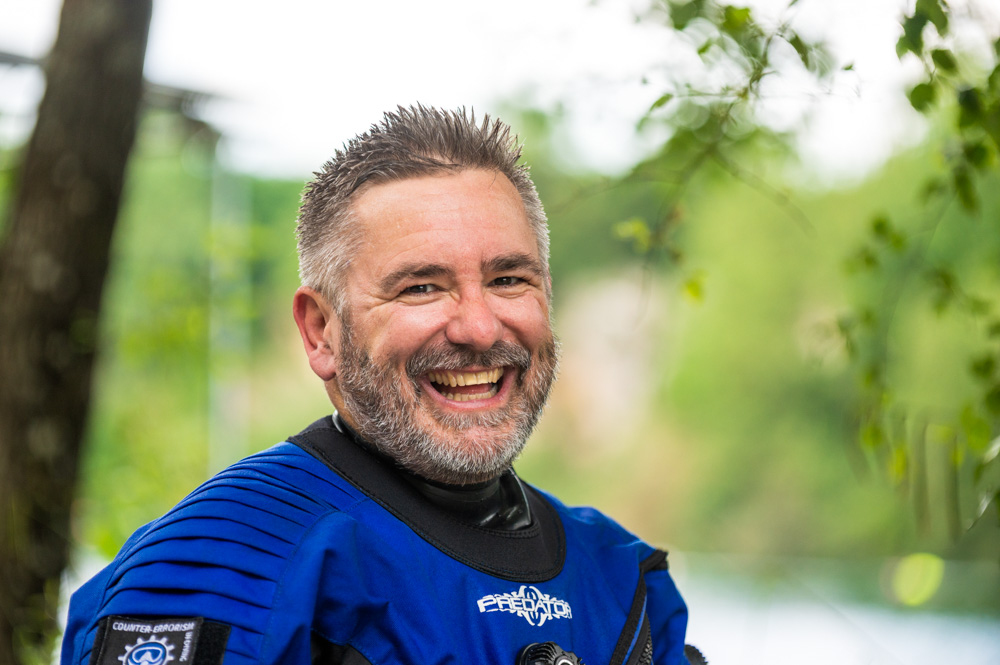
Gareth Lock is the owner of The Human Diver, a niche company focused on educating and developing divers, instructors and related teams to be high-performing. If you'd like to deepen your diving experience, consider taking the online introduction course which will change your attitude towards diving because safety is your perception, visit the website.
Want to learn more about this article or have questions? Contact us.

